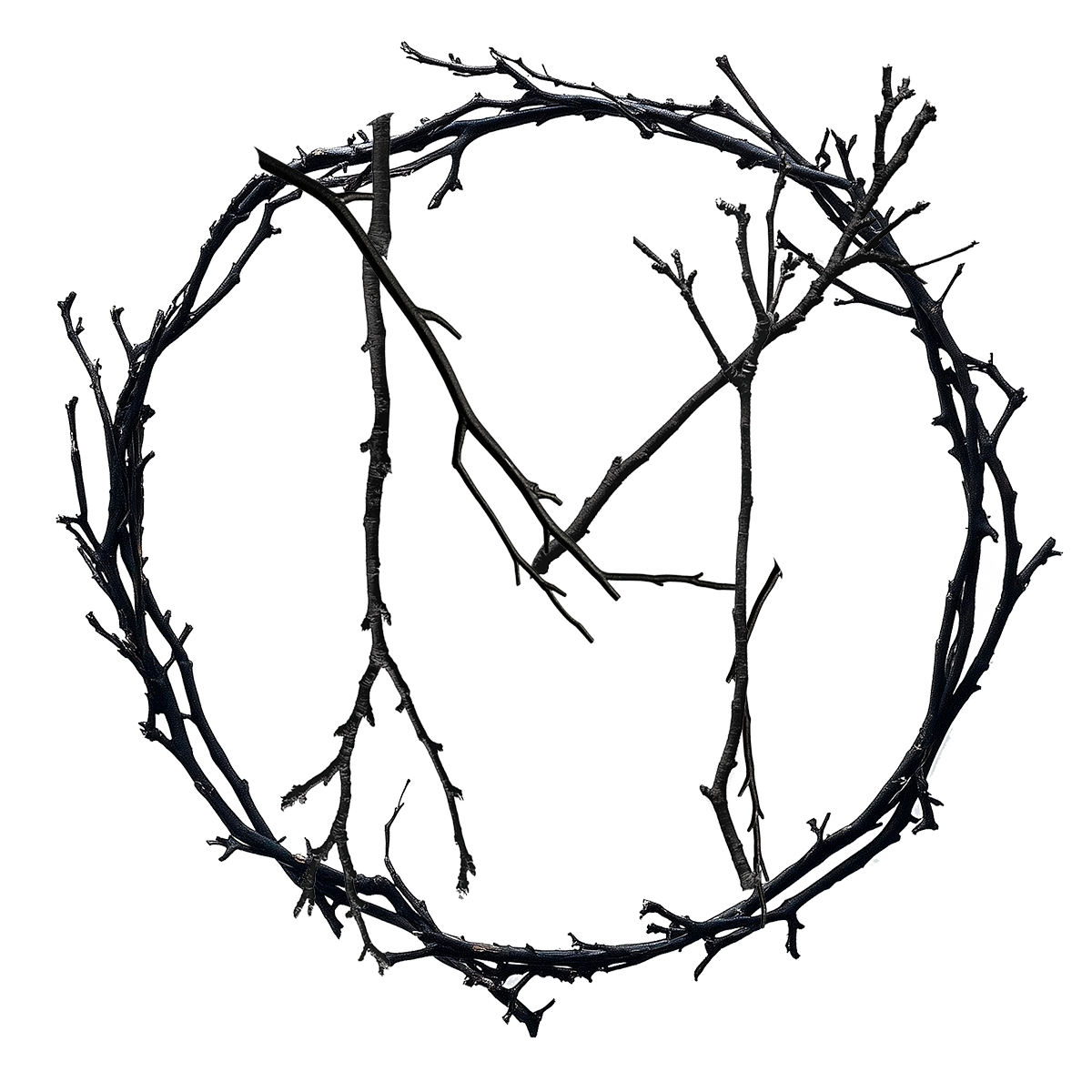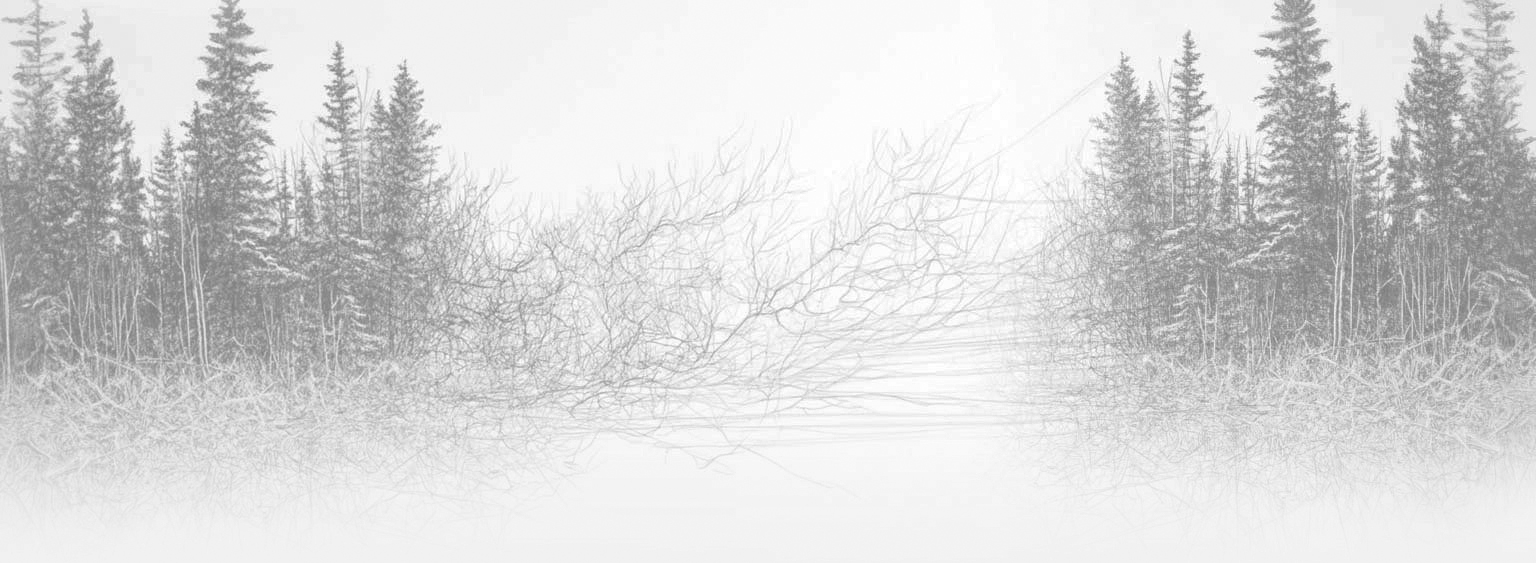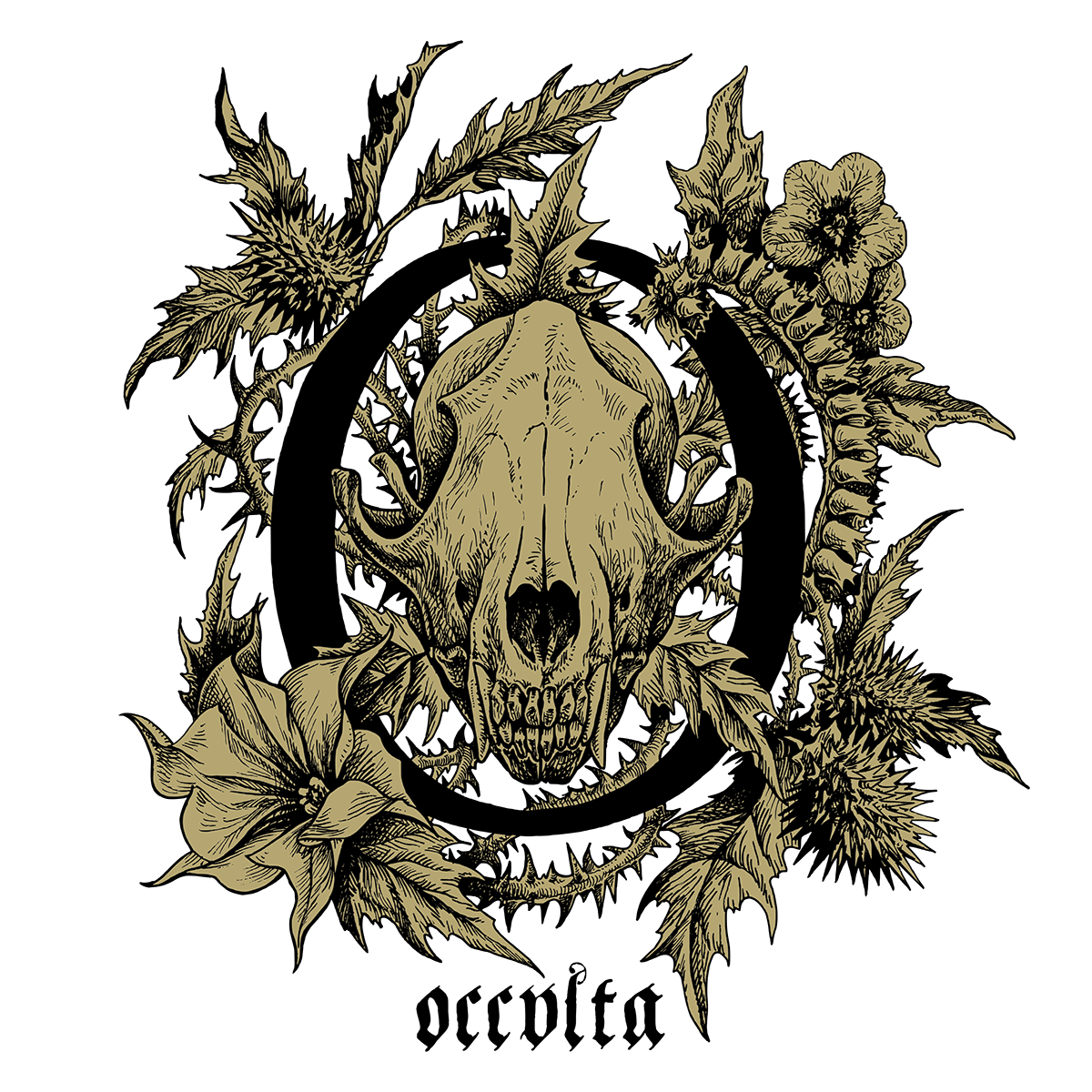An interview with
Júlia Carreras Tort
of Occvlta
Please introduce yourself and give a brief relevant history of your work.
I am Júlia Carreras Tort, I was born in 1988 and I live in the Pyrenees of Catalonia with my partner Hector: together we created Occvlta in 2013. I am a researcher of all things forgotten and forbidden: folklore, ethnobotany, folk religion, mythology, and mysticism. I have written books on witchcraft and the witch figure and teach courses on mythology, folklore, and plant lore for a living.
Tell us a little bit about the area you live, its current inhabitants, where it sits geographically. Tell us a little bit about the landscape you work alongside.
I live in the secluded Cardós valley (Pallars Sobirà region, Catalan Pyrenees), which is crowned with a jewel known as the Pla de Negua, a high altitude plateau allegedly used by pagans and people accused of witchcraft for their meetings. That spot watches over me and guides my steps since I first sat feet on this Land. The place I live in is a bit more abrupt, harsh, and complex than it may seem, specially to passers-by and tourists, so it is not as populated as other valleys in the region. But the mountains turn people into parts of itself, so, in time, I suppose I will also become a bit abrupt, harsh, and complex. It’s a kind of symbiosis.
What does the word “Animism” mean to you? Can you tell us about traditional animistic practices from the region where you live, if any still occur? How does Animism personally find life in your day to day movements?
Animism is the only approach to the world which makes sense in this day and age. In times of isolation, of severe loss, polarization: animism is a refreshing and validating certainty. To me, though, it is not about the attribution of soul to ‘things’, that would be artificial. Animism demands that we face the fact that we can only exist through relation: relations with other living beings, with non-living beings, with the Land, with concepts.
Every culture shows instances of animism, and they do not need to be arcane or primitive: from the moment you hit your printer and curse at it because it’s not working as you want it to, to the moment you touch your grandma’s watch with love and remembrance, we are living proof that human beings can be nothing but animistic in essence. We are constructed through relations: animism is the active recognition and revision of such bonds.
Still, I am openly partial to plants: I have devoted the last years to researching the animistic vestiges found in many Pyrenean customs and rituals involving plants: asking hawthorn bushes for protection, erecting votive altars to certain forgotten tree spirits. These things happened in the Pyrenees, and I intend to remind people of that.
Tell us of the spirits residing specifically in your immediate area, the woods you spend time in, the streams nearby. How do you talk with spirits or deities? Do they answer back? What advice would you offer people wishing to develop a deeper relationship with their local spirits?
We can tell much about the spirits of a Land by observing the human inhabitants of that place: they are also living spirits in constant symbiosis with their surroundings. People here are private, secluded, they have their own agenda, but they enjoy meeting together from time to time, celebrating, and they love to know about you as much as they can. Take your conclusions from that!
I am not much of a speaker (well that might come as a surprise for those who know me), I suppose I truly enjoy the false silence that surrounds me (for the land is not silent, I am just filled with too much noise to hear anything else). Presence is the language I have always chosen: I observe the Land around me, I try to sharpen my senses, pay attention to specific unexplored paths, find signs, and then act accordingly. I believe in working in collaboration with spirits: what we eat and what we drink, what we burn and use for building houses with, that is also animated. We should not refrain from using it, but be wise, sustainable, and ensure its survival at all costs.
My advice is to pay attention to all the small bonds we are immersed in from the moment we wake up: who collected the beans you are grinding to make coffee, where does the wool you are wearing come from… it might be a bit overwhelming at first. But it will inform better choices and help create healthier relationships in the long run.
Healthy relationships tend to be reciprocal. When interacting with these spirits of place, what do you offer them? How do you nurture them?
I have come to the conclusion that the best offering I can make is teach people about the Land and the spirits that inhabit it, to use my didactic skills to transmit the conclusions I reach. Of course, I still give actual and tangible offerings when needed and believe in the power of observing certain customs, specially those concerned with the yearly cycle, like seasonal festivities. But I think we humans like that better than anyone else.
What is the season of the year that resonates most deeply with you and why? In the context of harvesting and experiencing life within a purely seasonal framework, could you give us a glimpse of what the passing of a year looks like to you? Your relationship with different areas of the woods or mountains, different plants? How do you cultivate those relationships throughout the year?
Autumn is the best moment of the year: tourists have finally left our villages, so we can enjoy the valleys and forests with freedom, together with the other-than-human inhabitants of this place. Autumn is a time for reflection and observing the ever more noticeable presence of the dead. Winter is a time for creating bonds with otherness and with remembrance, for learning how to endure life, and how to make better use of our resources. Spring is a time for growth in strength and emotion, a time for expansion. And summer is a great moment for sacrifice, for hard work, for consuming everything we have created during the year.
I try to pay attention to all plants in all the seasons of the year, see how they evolve and die to re-bloom again.There is glory and teaching in every step of the way.
What do you dream of destroying?
All things eventually die, I am confident Nature will be faster than us in destroying what can no longer be maintained.
What do you dream of creating?
I dream of creating messages that endure and help people find a renewed love for the Land they inhabit and the world around them. This is why I write books.
What keeps you up at night?
Coherence. The concept of balanced sacrifice.
What brings you solace?
Fog in the mornings, and celebrating life with my loved ones and friends in the evening.
What does the word ritual mean to you? How do you incorporate ritual into your daily life? Your practice?
Ritual is everything we do, every day of our lives. The cup of tea I drink in the morning, the walk around the woods. All lives are ongoing rituals.
What does the word community mean to you and how does it influence your process and practice? Do you distinguish between human and non human communities?
Community should stop focusing on actual goals, which in the end lead to differences and conflict. A community is not a means to an end, community makes sense only for the sake of community, I have seen communities built with honorable goals in mind turn to shit. The only thing that makes sense is respect for each other and the wish to help us all succeed honouring and including every member of it.
How do your Ancestors inform your daily practice and / or creative endeavors? Two ideas some people engage with are “Ancestors of Well”, and “Ancestors of Path”. How do you interact with the Ancestors that hold unresolved trauma and negative traits like racism or a history of physical abuse or maybe even has a history of being an active colonizer? Or, do you only engage with “healthy” Ancestors? How do you interact with Ancestors of Path (for example- music, academia, spiritual path, activism) creating a unique path for yourself without creative or cultural appropriation?
I am nothing, we are nothing, without those who came before us. I do believe ancestors are an important part of my practice and my set of beliefs. But that does not mean I have to accept everything just because it came before me. A healthy relationship is a relationship that uses communication. We must communicate, talk to our ancestors of land, of blood, of guild, of whatever you believe. We can argue with them, we can break bonds with them. But in the end, the work is ours to mend.
I believe there is nothing as dangerous as suppressing history or interlocutor voices, so we must honour the sources we encounter through life. There is nothing sadder than oblivion.
Do politics intersect with Animism? Is there an inherent responsibility to the witch to engage with regional environmental activism?
Everything is politics. Every choice we make is politics. Every relationship we nurture or break is politics. Start small, review and revisit each one of those relationships: see where the balance is. Each small step will eventually guide you to where you are supposed to be. Coherence is the only exclusively-human quality I truly respect.
Any last departing offerings? Anything you would like to talk about that wasn’t covered?
The Land is our first mother and it will be our last companion. I’ve been recently published a book on Pyrenean witchcraft called Land of the Goat, via Three Hands Press.
www.patreon.com/occvlta
www.instagram.com/occvltacrafts
www.facebook.com/occvlta.crafts
Interview list





Norn
Xiu Xiu
Occvlta
Six Organs of Admittance
Coume Ouarnede
Traktat
Sutekh Hexen
Andy Aquarius
Returning
Niko Karlsson